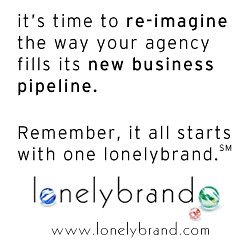 Social Dev Camp Chicago 2010 was a great time - if you weren't there I suggest getting on board for next year!
Social Dev Camp Chicago 2010 was a great time - if you weren't there I suggest getting on board for next year!In case you missed my panel presentation "Killer Social Apps: 5 Trends Shaping the Future of Brand Engagement" I've included some of the key points below. Special thanks to my fellow panelists Pek Pongpaet (@PekPongpaet) of SpotOn and Chris Pautsch (@ChrisPautsch) of KeyLimeTie.
Game Mechanics
It's no secret that social apps like Foursquare encourage participation and repeat use through an achievement system based on badges. But Foursquare and similar apps represent the beginning of a much larger trend - implementation of social scoring, rating and achievement will proliferate. It's human nature to want to feel a sense of building status and credibility in exchange for loyalty, and apps that satisfy the unmet need will see increased customer loyalty and a lift in repeat visits and use.
Mobility
The concept of mobility may seem obvious, but it's the implementation of the platform where many developers are shifting their thought process. Look for the next generation of mobile apps to be constructed from the ground up independently of preexisting structure. As mobility trends to smartphone adoption with more powerful and feature rich devices expect fewer apps that provide duplicate functionality as website based counterparts. The future of mobility lies in creating game changing applications based on an existing platform or as a first choice to other platforms entirely.
Context and Social Proofing
It's nice to have apps populated with useful information, but the latest trend in content based functions calls on the user's own social networks to create an experience that is both relevant and vetted by friends, followers and even ethereal internet acquaintances.
Activating Brand Advocates
Providing tools to allow sharing through social technologies is old hat. Marketers also know that most users opt out of sharing. Developers must not only provide the tools to share, but ensure the user experience is improved in a meaningful way. The best apps of the future will create much of their own buzz through brand advocates that spread the word as a result of app use.
Real to Virtual and Back Again
When Zynga began promoting their popular Farmville game through real 7-Eleven in store campaign tied to food purchase it set a precedent. Apps that provide a way for users to exchange in app activity for real world benefit and back again help connect and activate consumers - influencing purchase behavior in attractive ways to retailers.
Nick Kinports (follow him on Twitter @ADMAVEN) has worked in the interactive technology world for over 15 years, and helps the Fortune 100 identify unmet consumer needs, create ideas to fill those needs, and bring them into market. He currently works at Maddock Douglas.




